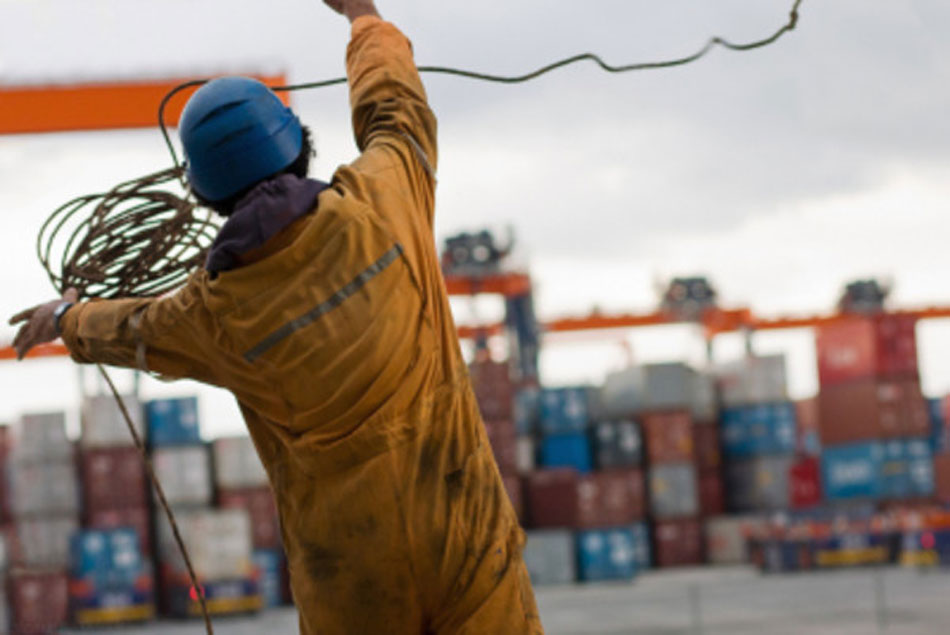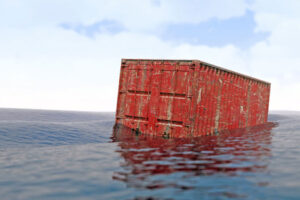One of the basic requirements of good crisis communications is that we understand each other in one language.One of the basic requirements of good crisis communications is that the protagonists understand each other in one language.
As the English language is the universal ‘language of the sea’, a basic understanding of English is an essential to anyone wanting a career in shipping.
There have been many shipping casualties over the years in which a failure to communicate clearly in English has been a significant contributory factor.
This was brought home to me most vividly when I worked as a reporter.
I was assigned to cover a criminal court case brought against two masters in Singapore who were in the dock following the infamous Evoikos casualty, the republic’s worst oil spill.
In October 1997, the Thai-registered crude-oil tanker, Orapin Global collided with Cyprus-registered tanker, Evoikos. More than 28,000 tonnes of marine fuel oil spilled into the sea when the vessels collided in the Singapore Strait. It took 650 people and 90 anti-pollution craft three weeks to clean up.
As I sat in the court room it was painfully apparent that both masters in the dock had limited English language skills. Both spoke in heavily accented English (one was Greek, the other was Polish).

Evidence produced by the prosecution included tapes of the VHF conversations between the two ships immediately before the collision. As these were played to a hushed court, it was clear that a language barrier played a major part in the misunderstanding between the two ships’ bridges.
While this casualty took place more than 20 years ago, I wonder how much the use of standardised English (or ‘Globish’) has improved in the industry since those times? After all, whether on the high seas or at port, misunderstood communication can lead to serious and even deadly situations.
Judging by our diverse client base of ship managers and owners across Asia, I would say the use of English has improved immeasurably since the Evoikos incident; greatly assisted by the parallel rise of Seaspeak, the basic language of the sea that every seafarer who steps on board a deck or a bridge should know.
When we discuss the media – training seafarers in places such as China, Indonesia, Myanmar and Korea – it is obvious that we now have the first global generation in which people from outside the English-speaking world can speak near perfect English.
This development has enormous implications for world shipping because it puts non-native English speakers on the same level playing field as native speakers. Not only does this have profound commercial and economic implications, it will also play an increasingly important role in the advancement of safety on board vessels.
It was not so long ago that the US and the UK dominated ocean shipping and it was estimated that 80% of ships’ crews were native English speakers.
By the end of the 1970s, however, the situation had reversed, and today 80% of ship’s crews do not speak English as a first language.
In the 1980s the International Maritime Organization (IMO) produced the new shipping language named ‘Seaspeak’.
Seaspeak defines the rules of how to talk on a ship’s radio. The number of words is limited to ensure that messages and conversations are short and clear. Eight words, called message markers, precede each sentence: Advice, Answer, Information, Instruction, Intention, Question, Request, and Warning.
An important rule of Seaspeak is that numbers made up of two or more digits are spoken in single digits. For example, the number 33 is spoken as “three three” and the time 9:33 a.m. is spoken as “zero nine three three.”
As Seaspeak and Globish English become ever more entwined, the scope for the kind of misunderstandings witnessed during the Evoikos spill will hopefully be a thing of the past.








